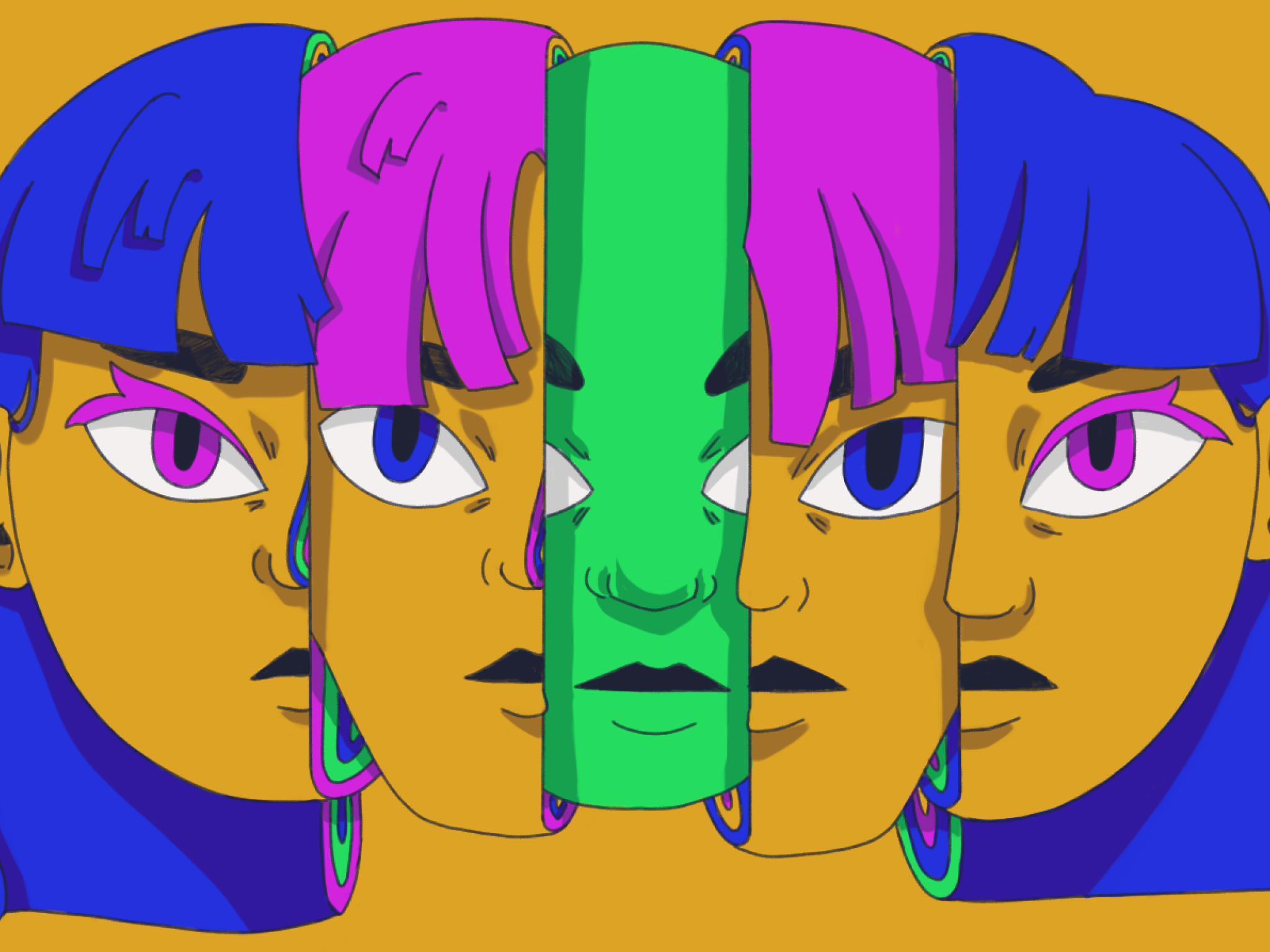Summary
Social VR is a powerful driver for self development and social support
With 100 respondents, I found that users who used social VR to explore their gender identity, presentation, or expression needed three things:
- Deeper Connections
- Better Communities
- Agency
With those three things, they were likely to grow as individuals, find new ways of self expression, and think positively about their experiences.
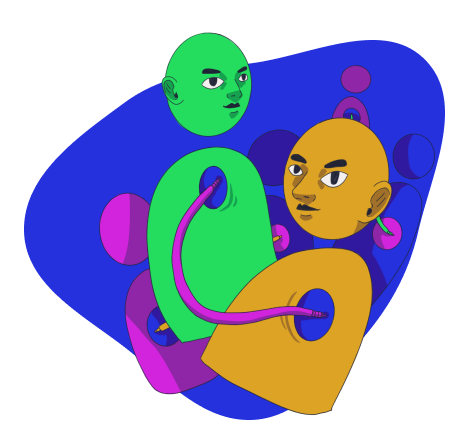
Deeper Connections
Many gender variant users in social VR spaces are looking to find deeper connections than they feel like they could find outside of VR. This is only helped by things VR is good at--immersion, embodiment, and being able to connect with people from anywhere in the world

Better Communities
Finding safe spaces and better communities is paramount for users to feel comfortable exploring gender. There is a lot of concern around whether or not users feel safe and many stick to groups they already know, but discoverability of these groups is low

Agency
Users must feel like they have agency over their appearance--it’s important for them to feel comfortable in their own skin and they are very aware of how they are presenting themselves. They will learn tools or find people to help them to make complex changes.
Study Details
Qualitative data sourced from community engagement
The open call for respondents asked for users who have used social VR in any way to explore their gender presentation or expression. I received 100 respondents with a variety of backgrounds--69 transgender (trending towards trans feminine) and 30 cisgender. 1 response was removed due to obvious spam (all responses were single word slurs).
The respondents were overwhelmingly technical and used VR on a regular basis, which may be because respondents generally used VRChat which requires some technical knowledge to customize things like the avatar or environment, even when purchasing these assets to use vs generating them themselves.
- 95% of respondents used VR more than once a week
- 75% used advanced avatar customizations, which means they used programs outside of the social VR app like 3D modeling programs or game engines.
- 55% of respondents found friends and communities by joining open worlds but respondents also often found communities and social groups outside of VR before meeting them inside of VR, so there was representation of both VR-centric and non-VR-centric social groups.
The questions they were asked were all open-ended outside of demographic data questions, with 2 identifying perceived positive aspects and 2 identifying perceived negative aspects of social VR.

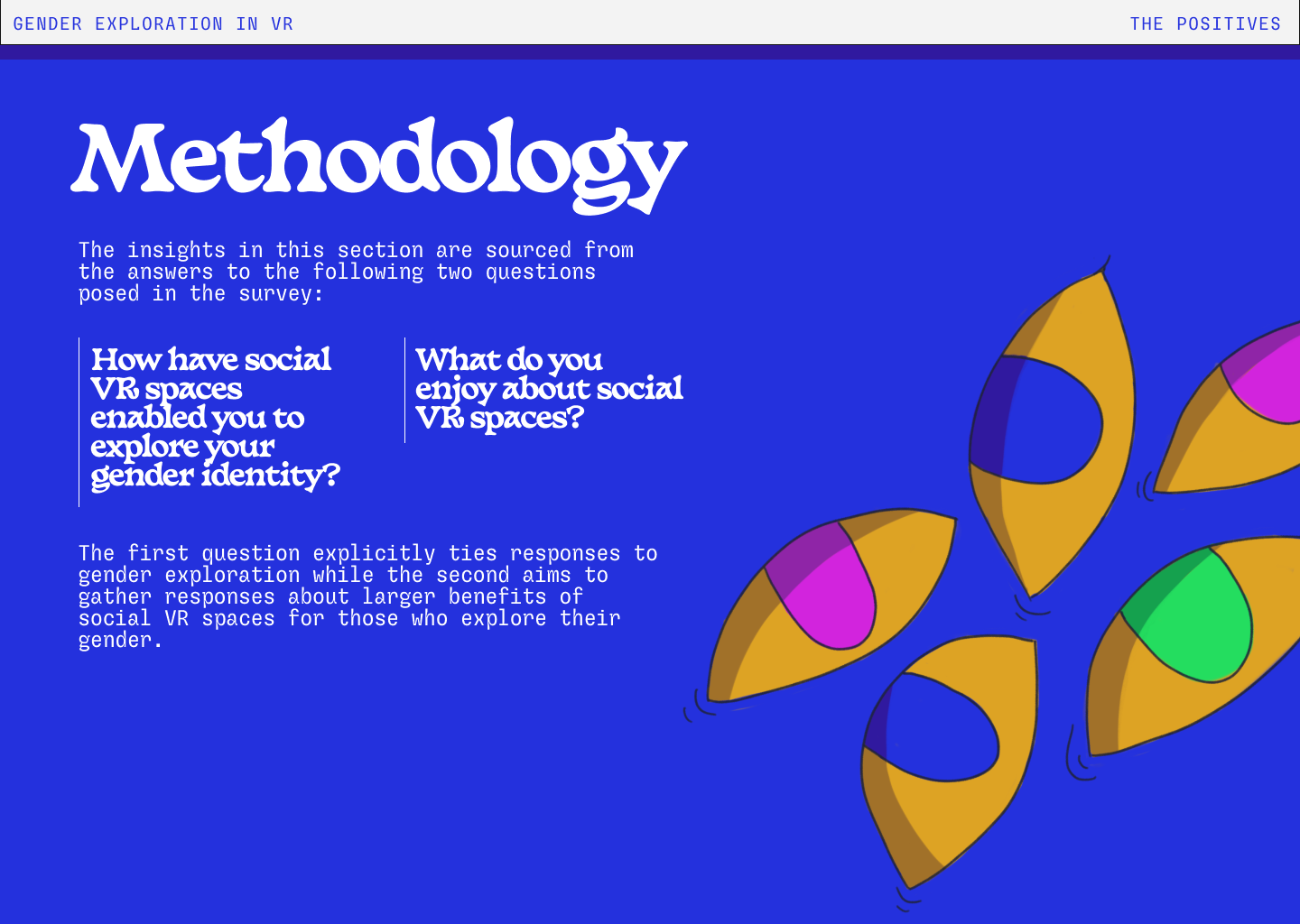


Positive Aspects of Social VR
People learned much more about themselves and found communities that they trusted
Respondents were asked two questions around the positives of social VR:
- How have social VR spaces enabled you to explore your gender identity?
- What do you enjoy about social VR spaces?
Some of the largest findings were:
- 49% of all respondents self reported an aspect of personal growth due to using social VR
- 79% of transgender respondents said that VR social spaces were more comfortable to interact in compared to physical spaces -- significantly more than the 57% of cisgender respondents that said the same
- 42% of transgender respondents used VR encourage their comfort within social spaces -- significantly more than the 17% of cisgender respondents that said the same
I've learned I feel uncomfortable in a fully female form, it's just not for me. That would have been more difficult and time consuming to learn without VR.
- Wo1fie (he/him, cisgender)
Being able to present myself in a way of my choosing, without fear of being judged for how I look. I've formed relationships in VR that I couldn't do IRL because of the subconscious barriers I keep up because of my own crippling depression and lack of self-esteem.
- Hero of the Day (she/her)
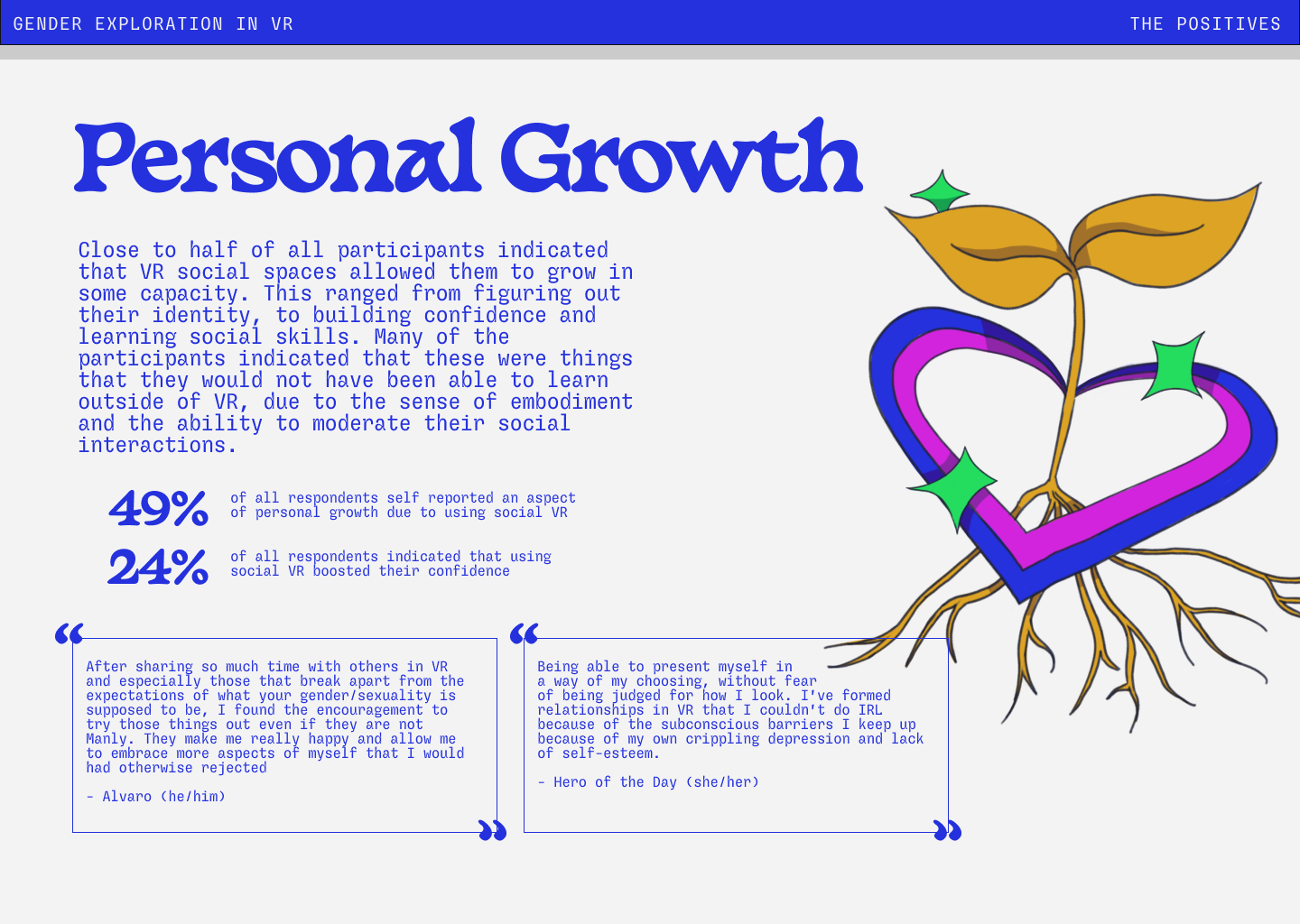
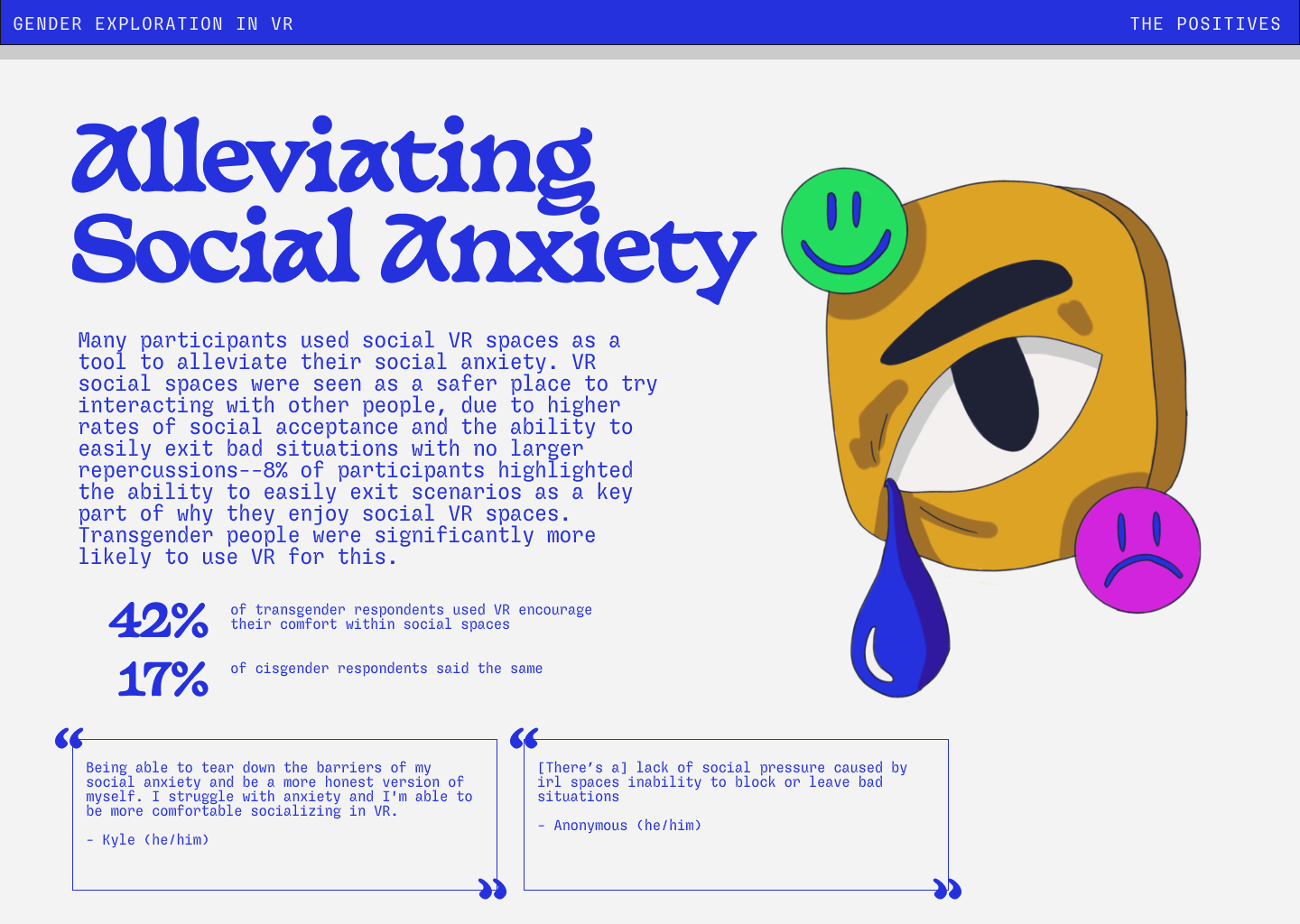
Negative Aspects of Social VR
While there are massive positive aspects, social VR spaces can always be improved
Respondents were asked two questions around the negatives of social VR:
- Do you have any concerns about VR social spaces?
- Is there anything you wish you could do or see more of in VR social spaces?
The responses in this section were more varied, resulting in lower percentages of agreement compared to the positives. Some of the largest findings were:
- 17.4% of transgender respondents mentioned encountering discrimination based on gender presentation as a concern -- significantly more than the 0% of cisgender participants who said the same
- 38% of transgender respondents were concerned about encountering unsocial behavior -- significantly more than the 17% of cisgender participants who said the same
- Age appropriateness was the largest concern, with 34% of all respondents concerned about minors being exposed to things that weren’t age appropriate
- 30% of all respondents wanted VR technology to be better than what’s currently available
VRChat has useful tools to purge antagonistic people from spaces, but that doesn't stop them from interfering with other users even if it's only for a moment.
- Cortez Acosta (he/they/she)
I truly wish there was a separation between the kids under 18...I still want the kids to have fun, I work with kids in the summer and want them to enjoy VR but thrusting us all in the same learning environment when they are not old enough to see a threat is detrimental to the whole
- Freaky ferret22 (she/her)

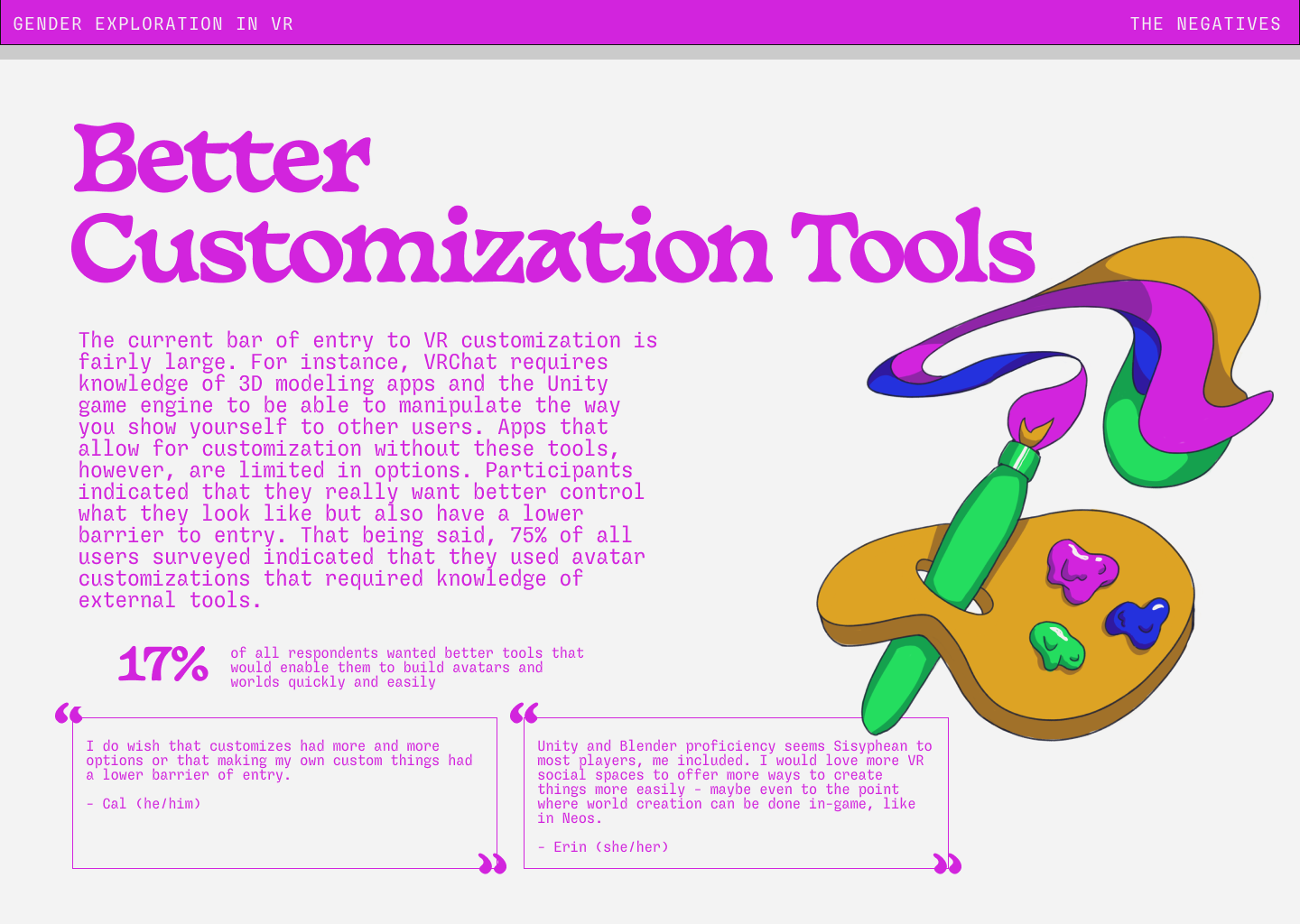
A Wider Impact
Sharing the results in a way that could be generalized as wider learnings
This independent research study informed talks at the Game Developers Conference and Northeastern University, as well as an article in Container Magazine

CONTACT ME
For all enquiries, email me at zachdeocadiz@gmail.com


